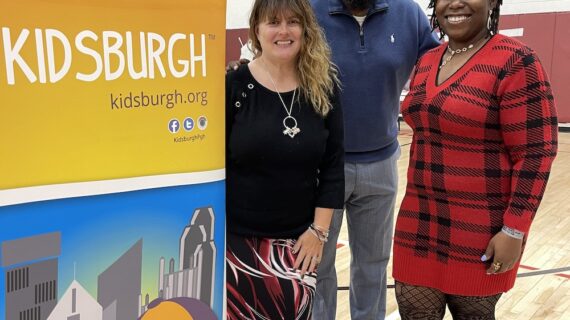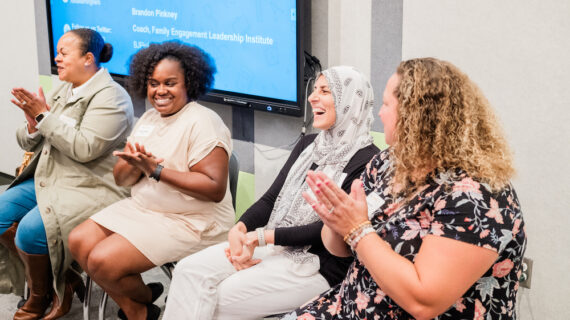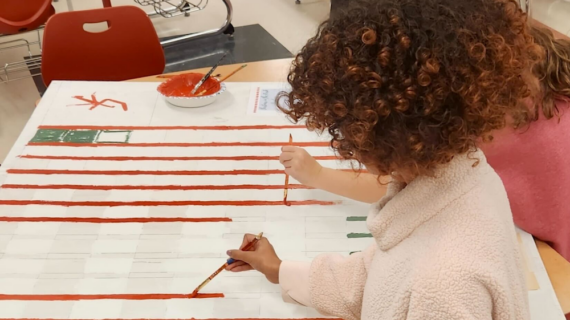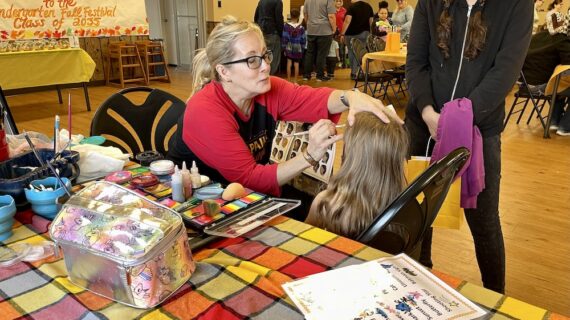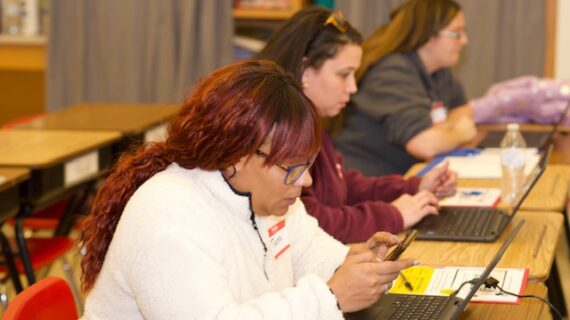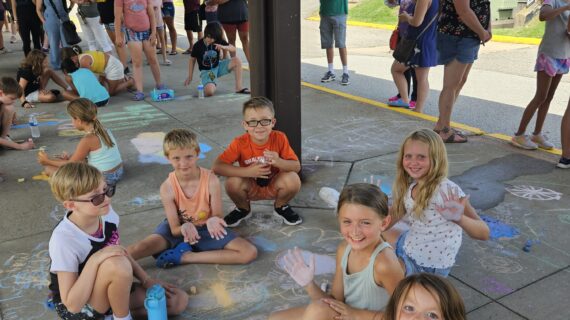
Parents as Allies: At Franklin Regional, information flows and connections grow
Photos courtesy of Parents as Allies/Franklin Regional.
Schools share lots of information with families – from progress reports and grades to details about upcoming events. But that’s one-way communication. Are parents really getting all the information they need from schools? Are schools hearing what parents have to say? And are both sides actually getting to know one another?
When Franklin Regional School District joined the Parents as Allies (PAA) family-school engagement project, its goal was to create two-way communication that could help everyone.
The PAA project brings together teams of school staff and parents to work together on the puzzle of family-school engagement. The team at Franklin Regional saw the work of improving family-school engagement as a stepping stone toward having a larger, positive impact in the community, says elementary school parent Jessica Wagner.
They also knew that listening was just as important as communicating.
So they began by asking parents with kids in third, fourth and fifth grades how they wanted to engage with the school — and what about.
About 40% responded to that survey. Many were eager to discuss family-school engagement. But the group of respondents wasn’t diverse. So they began reaching out to parents who weren’t represented, like the parents of English language learners.
They began asking parents to participate in focus groups. That small step made a difference.
“Even being asked if they were interested in joining the focus group had an impact,” says Franklin Regional assistant superintendent Jennifer DiFulvio. Many parents told the team: “No one had ever asked me before.”

WHAT DID THEY TRY?
They convened six focus groups with organizing help from the nonprofit Mentoring Partnership of Pittsburgh. What they learned: that people want to celebrate and discover a variety of cultures and experiences, and that they want “intentional” connections among parents, community groups and teachers and staff.
There was so much interest in connecting.
“It made me feel like we are really going to make long-term progress,” Wagner says. “We weren’t just going to sit around and talk about it.”
This isn’t “the typical work we’re asked to do as a school district,” DiFulvio says. But the team at Franklin Regional was seeing that this work is both valuable and possible.
With that knowledge in mind, they began building. The team hosted informal dinners and found other opportunities to connect face-to-face with families. They created a mentor/mentee program for the families of English language learners. They also gathered a committee that would focus on improving two-way communication methods between the school and families.
It started to work. In one family, a son wanted to play baseball but the parents didn’t know anything about the game or the rules. So the PAA team made sure a mentor could help families with that directly.
Another example: The team learned about the challenges in making friends for a kindergarten student from an ELL family. So a local mentor family was enlisted to help.
This work is still ongoing at Franklin Regional, and Wagner says connections are growing. New faces are appearing at school events. New relationships continue forming.
“I’ve seen a lot of these parents at other school events,” Wagner says. “We have a close bond. It’s just really cool.”
WHAT WOULD THEY TELL OTHER SCHOOLS?
- It’s ok to start small. There is a lot of value in small but powerful first steps like sending out a survey. Don’t underestimate that.
- Collaborate with other community organizations. Schools don’t have to be islands. Franklin Regional collaborated with the Mentoring Partnership to do its focus groups, and learned that involvement of an outside organization signaled to parents that the school district was taking parent-school engagement seriously.
- Make sure families feel safe giving honest feedback to the school. It’s important to let families know that they can speak freely so the district can learn of concerns and do something about them.
- Bring plenty of empathy to the process. “The empathy is what will drive the success of this program,” says teacher and PAA team member Brandi Sberna.


